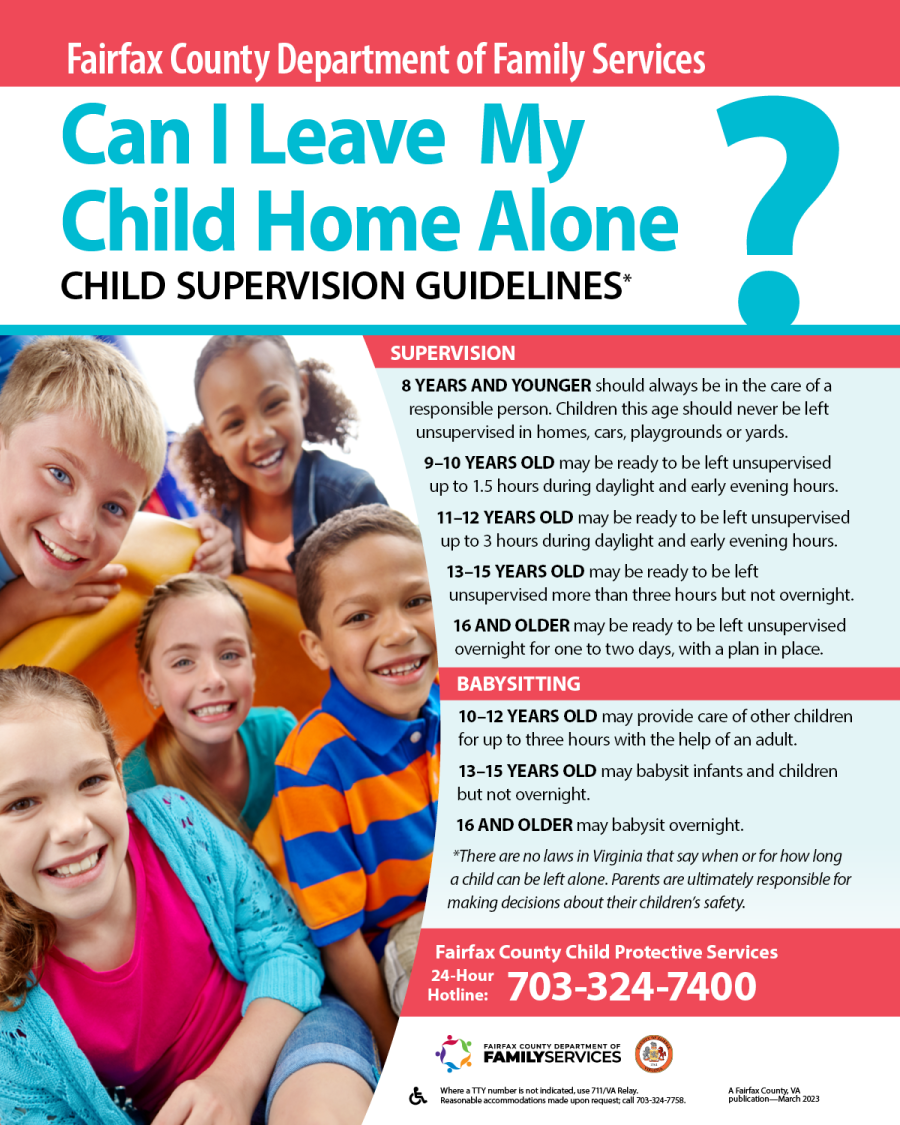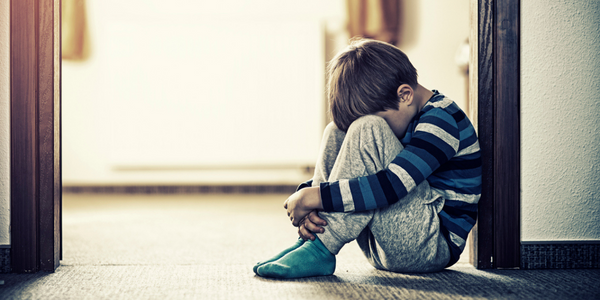1. It’s often really hard to know if a child is being harmed. Sometimes we may see it happening with our own eyes, but other times we may only see signs of what could be happening. Be aware of the signs of abuse and neglect, such as:
- Malnourishment, lack of personal hygiene.
- Unexplained bruises, welts or other marks.
- Significant changes in behavior, such as becoming withdrawn or fearful.
- Children who appear too young to be left alone.
- Home safety hazards or unsanitary conditions.
2. Familiarize yourself with child supervision guidelines. There are no laws in Virginia that say when or for how long a child can be left alone. Parents are ultimately responsible for making decisions about their children’s safety. Every child is different and must be assessed based on their maturity, skills and comfort level to be home alone. However, all Northern Virginia jurisdictions agree that children 8 years old and younger should always be in the care of a responsible person. Guidelines state that children this age should never be left unsupervised in homes, cars, playgrounds or yards.

3. Refer families to the Parent Support Line available Monday-Friday, 8 a.m.-4:30 p.m., at 703-324-7720. It’s a great resource for parents and caregivers, offering parenting advice, support and tips to help navigate emotional and relational parenting issues. They can also connect families to resources that might help them to navigate circumstances that complicate their ability to parent well. Language support is available.
4. If you have concerns about a child’s safety, call the Child Protective Services’ 24-hour hotline at 703-324-7400. You may give your name (confidentially) or remain anonymous.
5. Spread the Word about Free Virtual Body Safety Classes open to any Pre-K through sixth grade students living in Fairfax County. Using the Childhelp® Speak Up Be Safe curriculum, trained facilitators help children build safety skills, preparing them to identify and avoid risks such as child abuse, cyberbullying, and internet predators. Learn more about this program or register a child.
6. Kids do well when they spend time with adults who listen to them and care about them. These good experiences help their brains grow strong and make families tougher. Sadly, the most common problem kids face is being neglected, especially in families dealing with too much stress. The best way to help kids succeed is to support families before things get really bad. You can help by mentoring or volunteering with teens, being a friendly and caring adult for a child, or giving help and support to parents who are having a hard time.





 SIGN UP FOR DAILY EMAIL HEADLINES
SIGN UP FOR DAILY EMAIL HEADLINES